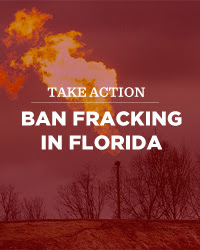
On Friday afternoon, the House of Representatives voted for the ninth time to approve a bill directing President Barack Obama to take action on the construction of the Keystone XL pipeline, which would carry tar sands oil from Alberta, Canada to the Gulf of Mexico. Next Tuesday, the Senate will hold a similar vote that is expected to pass. But it is looking increasingly likely that Obama will veto the bill when it reaches his desk. And he should.
“I have to constantly push back against this idea that somehow the Keystone pipeline is either this massive jobs bill for the United States or is somehow lowering gas prices,” the president said at a press conference in Myanmar Friday morning. “Understand what this project is: It is providing the ability of Canada to pump their oil, send it through our land down to the Gulf where it will be sold everywhere else.”
Watch video below, via CNN:
Republicans in Congress — along with some Democrats like Mary Landrieu, who is now leading the charge for the pipeline in the Senate in a last ditch effort to save her seat — point to a State Department report that says the project will not have a major impact on greenhouse gas emissions because the Canadian oil is likely to be extracted at a similar rate with or without the pipeline. Meanwhile, they argue that it will create a large number of American jobs. Of course, for conservatives who don’t believe in man-made climate change, even one job is probably worth more any potential decrease in emissions.
But, as Obama said earlier today, Keystone is not some “massive jobs bill” that is going to solve America’s (diminishing) unemployment problem. Republicans love to cite the State Department report on the pipeline’s environmental impact, but you are not going to hear them talking as much about the section that covers job creation. That’s because while the report estimates the pipeline will create 42,100 jobs annually, only 16,100 of those are directly connected to the pipeline (the rest are predicted to be the result of a “ripple” effect of the project).
But as CBS News’ Amy Picchi points out in a piece published today, those jobs will only exist for the two years during which the pipeline is being built. After that, the State Department estimates there would only be 35 permanent employees needed for the operational phase.
And when the president stated that Keystone won’t lower gas prices, he could have also mentioned that it might actually raise them. In April, Bloomberg’s Tom Randall reported that “in Keystone’s weirdonomics, the pipeline would actually increase prices of gasoline for much of the country, according to at least three studies that have looked into it.” Basically, because the oil would be bypassing Midwest refineries in favor of the Gulf, where it can be shipped to more lucrative overseas markets, there will be less oil to be had here at home, therefore increasing prices for American consumers.
So, the Keystone XL pipeline will not create any long-term jobs and could actually make gas more expensive in the U.S. But what about the environmental impact? While the State Department has said that the project will likely not significantly increase greenhouse gas emissions, it definitely will not decrease them, which is what America and the rest of the world needs to be doing in order to avert the worst case scenarios of climate change. On top of that, construction of the pipeline greatly increases the risk of a massive oil spill on U.S. soil.
Ultimately, the Keystone XL pipeline represents more than a simple construction project. It is about the decision to move forward on renewable energy or remain stuck in the past for generations to come, extracting every last bit of crude oil out of the ground until there’s nothing left. As long as Obama is still president, he has the ability to send a message to world that despite the modest benefits Keystone might bring, it is not worth the risks and would send the United States down a long path in the wrong direction.
[Photo via screengrab]



 Louisiana Environmental Action Network
Louisiana Environmental Action Network









